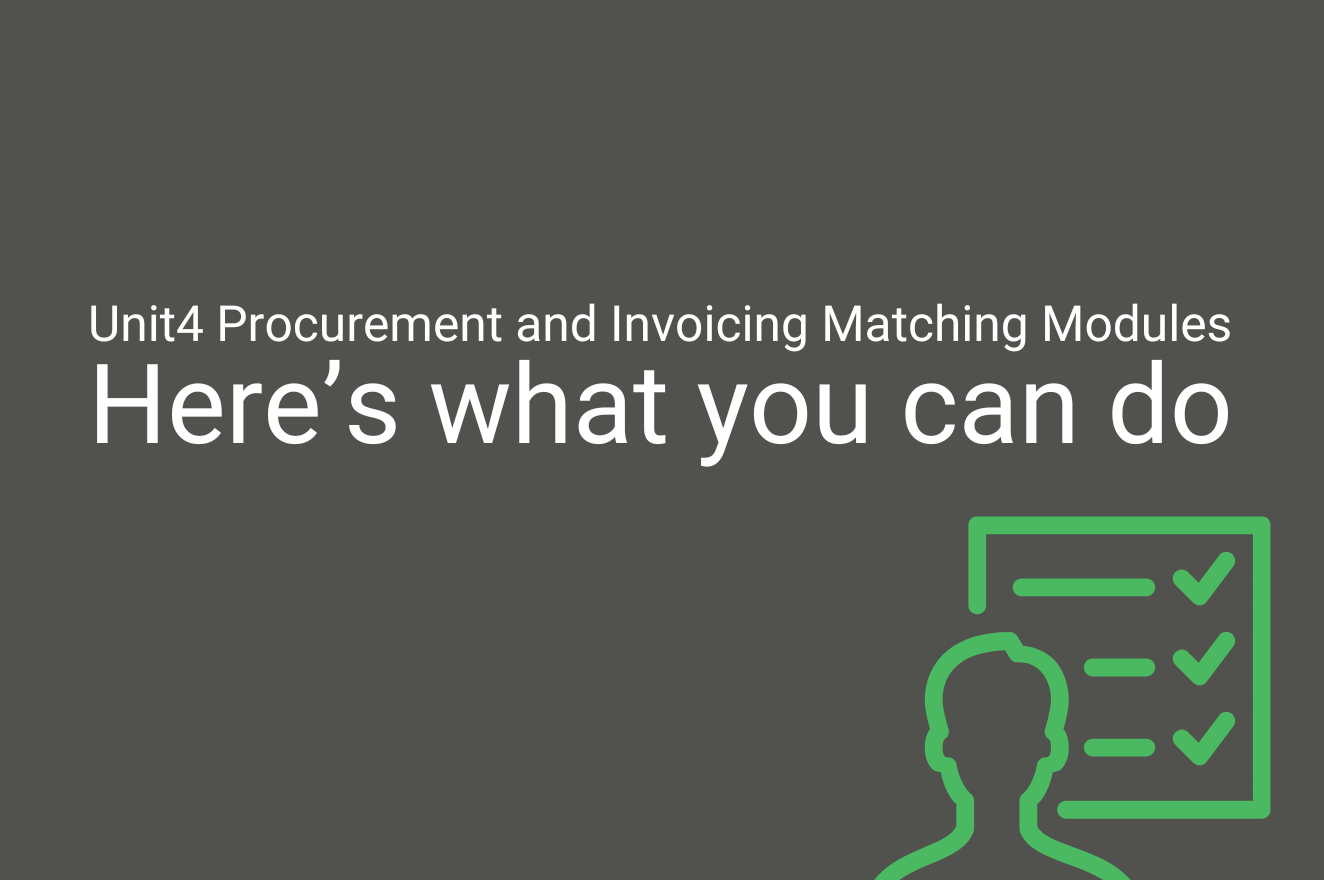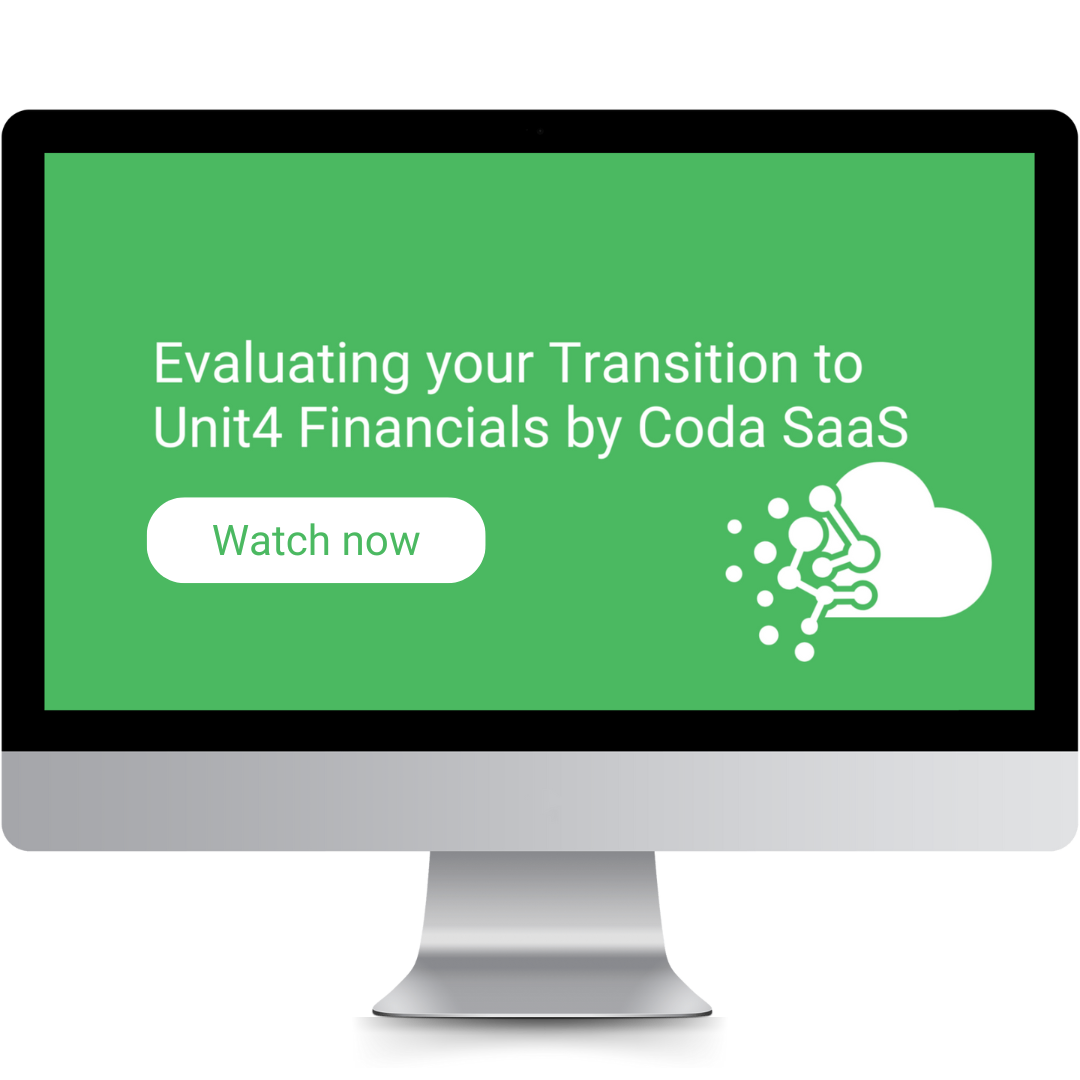Technology Integration
Millennium Consulting Webinar Series
Holistic Transformation
In today’s fast-paced digital landscape, adopting and integrating modern technologies is critical to staying competitive.
Join Millennium for a dynamic webinar to explore how technology can transform processes, reduce redundancies, and drive continuous improvement using agile methodologies.
Scheduled for Thursday 26th March 2026 from 3:00 PM to 3:45 PM GMT.
Key topics covered:
- The strategic benefits of adopting cloud computing, AI, IoT, and big data analytics.
- Best practices for eliminating outdated, siloed systems.
- Ensuring interoperability between platforms to enable data-driven decision-making.
- Overcoming common challenges in technology integration projects.
- Insights into future-proofing your organisation through cohesive technology ecosystems.
This session is for business leaders/decision-makers, sharing how strategic technology transformation can enable their organisations to achieve long-term success.
Hosted by Millennium’s CEO, Philip Keet
Process Optimisation
Millennium Consulting Webinar Series
Holistic Transformation
Streamlined workflows and optimised operations are the cornerstones of organisational efficiency.
Join Millennium for a dynamic webinar to explore how technology can transform processes, reduce redundancies, and drive continuous improvement using agile methodologies.
Scheduled for Thursday 11th December 2025 from 3:00 PM to 3:45 PM GMT.
Key topics covered:
- Leveraging technology to streamline workflows and eliminate inefficiencies.
- Identifying and addressing operational redundancies.
- Implementing agile methodologies to foster adaptability and continuous improvement.
- Real-world examples of successful process optimisation through technology.
- Measuring the impact of process improvements on organisational performance.
This session is for business leaders/decision-makers, sharing how strategic technology transformation can enable their organisations to achieve long-term success.
Hosted by Millennium’s CEO, Philip Keet
People and Culture
Millennium Consulting Webinar Series
Holistic Transformation
Successful technology transformation isn’t just about systems—it’s about people.
Join Millennium for an engaging webinar where we explore the critical role of employees in driving transformation and how fostering an innovation-driven culture, effective change management, and comprehensive training can make or break your initiatives.
Scheduled for Thursday 25th September 2025 from 3:00 PM to 3:45 PM GMT.
Key topics covered:
- Aligning technology investments with organisational strategy and goals.
- Fostering collaboration between IT and business units for shared success.
- Measuring the ROI of technology initiatives in the context of strategic objectives.
- Building a roadmap for continuous alignment as your organisation evolves.
This session is for business leaders/decision-makers, sharing how strategic technology transformation can enable their organisations to achieve long-term success.
Hosted by Millennium’s CEO, Philip Keet
Strategic Alignment
Millennium Consulting Webinar Series
Holistic Transformation
Technology plays a vital role in driving organisational success, but how can you ensure your investments align with your long-term mission and objectives?
Join Millennium for a compelling webinar that explores the importance of strategic alignment and the collaboration required between technology leaders and business units to achieve it.
Scheduled for Thursday 29th May 2025 from 3:00 PM to 3:45 PM GMT
Key topics covered:
- Aligning technology investments with organisational strategy and goals.
- Fostering collaboration between IT and business units for shared success.
- Measuring the ROI of technology initiatives in the context of strategic objectives.
- Building a roadmap for continuous alignment as your organisation evolves.
This session is for business leaders/decision-makers, sharing how strategic technology transformation can enable their organisations to achieve long-term success.
Hosted by Millennium’s CEO, Philip Keet
Unit4 Procurement and Invoicing Matching Modules: Here’s what you can do
Unit4 Procurement and Invoicing Matching Modules
Here’s what you can do
Users of Unit4 Financials by Coda (U4FbC) can take advantage of two valuable add-ons to streamline purchase order processing and invoice matching.
The U4FbC Procurement module standardises, automates and applies controls across all stages of procurement linked to indirect spend. A further module, Invoice Matching, facilitates automated three-way matching, and can be used for both indirect spend and stock-related invoices.
For an overview of both modules, be sure to take a look at this POP and PIM guide. To accompany that guide, here’s a deep dive into some of the key features offered by these modules and how those features translate into real-life benefits for your finance team.
Commitment accounting
An accidental budget overrun is something no finance manager wants to deal with – especially if it has arisen as a result of a pending payment being overlooked.
Commitment accounting refers to the ability to track and manage future financial obligations. Getting it right involves recording future obligations as soon as they arise, ensuring that funds are reserved and can’t be spent elsewhere.
One of the best aspects of the U4FbC Procurement module is the fact that it makes you much better equipped to track and account for committed future spend. Two things are essential for this: visibility and control. The U4FbC Procurement module gives you both.
Visibility stems from the fact that Unit4 Financials by Coda is built around a single integrated database. This allows you to analyse your commitments in the round: for any account, you can see what you’ve spent and will spend as a consequence of approved purchase orders. This means you can instantly and accurately compare your budget against committed spend.
The control element ensures you are warned of possible budget overruns before managers enter binding commitments. Let’s say a departmental manager submits a requisition for approval. The system automatically checks this against the budget to see if sufficient funds are available. We can configure the system for you so that if there’s going to be an overrun, relevant budget holders and other stakeholders are immediately alerted. You can then decide whether to approve the requisition or put it on hold.
Workflow authorisation
The Procurement and Invoice Matching modules work the same way as the main U4FbC platform, so users can get to grips with them immediately.
As with Unit4 Financials by Coda, the Procurement module uses position hierarchies to determine authorisation workflows. A position determines the monetary authorisation limit for different categories of employees. So, for example, you might have three positions: £10k, £50k, and £100k, with employees assigned to positions according to their department and level of seniority.
The system also lets you distinguish what employees can sign off on based on elements of responsibility. For instance, you might have two managers at the same seniority tier, both of which are assigned a £10k spend position. Thanks to element responsibility, you can ensure that, for example, an IT manager can only sign off on IT-related business, and the finance manager can only sign off on finance-related expenditure. This way, you can build an approvals hierarchy matching your organisation’s approval matrix.
Accruals
When goods or services are received, but the supplier’s invoice has not yet been issued or processed, Unit4 Invoice Matching can automatically generate an accrual entry. This means the cost of the received item is reflected in your accounts even before the invoice is matched and paid.
Of course, not every expenditure item needs a purchase order (utilities, rent, and routine employee reimbursements are just some examples). For these types of expenses, a non-PO invoice will only be accrued at month-end if it hasn’t been approved through the workflow by that time.
In U4FbC, selectors control all of this. Throughout the system, you use selectors to filter, retrieve, and organise data and control all activities – whether it’s reporting, payment runs, currency, or revaluation. The Procurement and Invoice Matching modules both use selectors in the same way as the rest of the Unit4 ecosystem, so when you’re putting these add-ons to work for the first time, it’s very much ‘business as usual’, with no steep learning curve.
The Procurement module is designed to consolidate procurement processes linked to indirect spend (i.e. not inventory). Therefore, it makes sense for many businesses to implement this module alongside their inventory/stock control system and apply the Invoice Matching module to both. The use of selectors facilitates this, enabling us to set up different accrual control accounts for you and using the selectors to determine which account different categories of invoice are sent to.
Intercompany capabilities
The platform’s comprehensive intercompany capabilities are one of the significant benefits of U4FbC, making it as straightforward as possible to automate, simplify, and manage transactions between different entities within your business. This functionality extends to the Procurement and Invoice Matching modules.
Let’s say a manager raises a purchase order comprising three lines relating to three separate companies within the business. Thanks to the intercompany purchase order option in Procurement, you can raise a single purchase order, but each expense line goes to the P&L of the corresponding entity. In contrast to many systems which require you to carry out intercompany allocations after the event, it’s all handled at the start of the process: you tell the system which company each expense line relates to, and the platform does the rest.
Self billing
Self billing means you can process transactions without waiting for third parties to send through their invoices. It’s common when you have a long-standing relationship with a supplier, particularly involving frequent, repeat transactions.
Unit4 Procurement and Invoice Matching both support self billing. For example, you raise a PO in the Procurement module. On fulfilment, a goods received notice (GRN) is generated. You can also configure the system to automatically generate an invoice on the supplier’s behalf. The Invoice Matching module will then match the GRN to the invoice, post it to your account, and automatically email the invoice to the supplier for their records.
Deferred matching
An excellent invoice matching tool should reflect the realities of commercial relationships. And, of course, in contrast to fulfilment taking place via a single neat event, it’s very common for it to happen in stages, with invoicing based on things like batch delivery, services required, or project milestones met.
Under these scenarios, identifying discrepancies between invoices, purchase orders, and fulfilment records becomes much more challenging. This is why you need robust deferred matching capabilities, which Unit4 Invoice Matching provides.
For example, let’s say you have engaged a third party marketing company. You’ve negotiated a fixed fee of £100k to cover a marketing campaign and agreed on an advance payment of £10k.
Under this scenario, you can raise a PO of £100k using the Procurement module. At the same time, the marketing company invoices you £10k for the advance payment. But of course, you haven’t received any services yet, so there’s no fulfilment for it to be matched against.
This is where the deferred matching functionality comes into play. The £10k invoice will be posted to your balance sheet, and the payment will be processed. However, it is also posted to a dedicated prepayment account. Later, upon completion of the contract, the marketing company issued an invoice for the remaining £90k. This is matched, and the system automatically takes the £10k out of the prepayments account and posts it to the same expense item as the £90k.
What next?
These capabilities – commitment accounting, deferred matching, accruals and more are available out-of the box once you have the modules in place. You can find out more here.
To explore implementation and licensing options, speak to Millennium Consulting today.
Evaluating your Transition to Unit4 Financials by Coda SaaS
Watch this video on: Evaluating your Transition to Unit4 Financials by Coda SaaS
Whether you have already migrated to the Cloud, are currently in flight, or are still in the planning stages, this video showcases why a switch to SaaS provides the perfect window for process evaluation, along with a closer look at the areas to focus on…
Are you missing out on ‘easy wins’ to boost operational efficiency?
The Millennium Consulting Systems Health Check equips you to extract maximum benefit from your existing Unit4 Financials by Coda investment.
Millennium Consulting visits Raising Futures Kenya in Nairobi
October 2024
Millennium Consulting visit Raising Futures Kenya in Nairobi
Our CEO and long-time Patron of Raising Futures Kenya (RFK), Phil Keet, visited the charity’s operations in Nairobi with his wife, Jane. Millennium Consulting has supported RFK for nearly 20 years, contributing to the charity’s mission of supporting young people in Kenya to become self-reliant and live free from poverty.
During their visit, Phil and Jane Keet met with the charity’s leadership team, Mary and Florence, toured the vocational training facilities, and spent time engaging directly with students enrolled in the Seed of Hope programme. The Keets were deeply moved by the enthusiasm of the students, who expressed immense gratitude for the life-changing opportunities provided through the program.
Raising Futures Kenya has provided opportunities for disadvantaged youths by equipping them with the skills and resources necessary for self-reliance. Through vocational training programs, the charity helps young people gain employment or start their businesses, creating a ripple effect of positive change in local communities.
“After supporting Raising Futures Kenya for almost two decades, visiting the centre in Nairobi was incredibly meaningful. We were truly impressed by the dedication of the staff and the optimism of the students. Their self-confidence and hope for the future are a testament to the impactful work being done by Raising Futures Kenya and Seed of Hope.”
We are dedicated to sustainable development, in line with its overall goal of promoting social change. This visit showcases our commitment to making a real difference beyond its main business services by creating opportunities for those in need.
For more information on Raising Futures Kenya and their initiatives, visit here.
Millennium 2025 Raising Futures Kenya Golf Day
We are excited to announce that the 2025 Millennium Golf Day, which will raise funds for Raising Futures Kenya, will take place on Friday 6th June 2025, at Woldingham Golf Club.
Developing a Seamless MTD Solution for Unit4 Financials by Coda
Developing a Seamless MTD Solution for Unit4 Financials by Coda
When we embarked on creating our Making Tax Digital (MTD) solution, our goal was to build a product that integrates seamlessly with Unit4 Financials by Coda. In this post, Chris Peall, Director of Professional Services at Millennium Consulting, shares the vision behind the software development.

Over the years, many of our customers have expressed the need for an MTD-compliant solution, as Unit4 Financials by Coda doesn’t have a built-in option. While several third-party solutions exist, we were committed to developing one tailored for Unit4 Financials by Coda, rather than trying to make an existing solution fit. We aimed to provide a true plug-and-play experience, requiring minimal configuration so that customers could achieve MTD compliance swiftly and efficiently.
Longevity is key as HMRC requirements will change and customers need a platform that can adapt easily with the minimum disruption possible. Our HMRC recognised product does just that.
By focusing on this niche, we’ve designed a product that fits perfectly within the Unit4 Financials ecosystem and simplifies the transition to digital tax reporting for finance teams.
Our three key objectives:
Simple
A key priority for us was creating a product that was simple and easy to use. Making Tax Digital (MTD) doesn’t have to be complicated. We aimed to develop an intuitive and user-friendly tool, enabling finance teams to comply with MTD requirements without hassle.
Secure
We live in a world with an increased threat to our cyber and technical estate; our Principal Information Security Consultant was involved in every step to ensure that MVAT meets the highest security standards, both now and in the future. Handling sensitive financial data requires a robust security framework, and we’ve ensured that MVAT locks down data effectively while maintaining its ease of use.
Seamless
Our solution seamlessly takes data from Unit4 Financials by Coda and passes it to HMRC. We know validation and approval are critical steps, so we’ve ensured the process integrates smoothly. Our goal was to create a solution that feels like a natural extension of the Unit4 Financials by Coda platform, allowing users to manage tax submissions with minimal disruption to their existing workflows.
Watch this demo of MVAT: Millennium’s Making Tax Digital software

Learn how to:
Submit VAT Returns Mapping Unit4 Financial by Coda set up User Management Additional HMRC Reports Submission Audit
Millennium Raising Futures Kenya Golf Day
Help us change lives
Millennium 2025 Raising Futures Kenya Golf Day
Friday 6th June 2025 at Woldingham Golf Club in Surrey
We are excited to announce that Millennium's nineteenth annual Charity Golf Day will be held at Woldingham Golf Club, one of Surrey's premier courses. We look forward to welcoming clients, business partners, and associates on Friday 6th June for a day of enjoyable golf while raising essential funds for Raising Futures Kenya, our longstanding charity partner.
Our goal for this year is to raise £10,000
The 2024 event raised £7,000 and provided the tools needed for 26 students to acquire valuable business and life skills, enabling them to support themselves. This year, more than ever, Kenya needs our support. Economic and social challenges are making it even harder for young people to break the cycle of poverty. That’s why we’ve set an ambitious target of raising £10,000. This golf day is more than just a day on the course – it’s a step toward lasting change.
This year, we’re switching up the format – the winning four-ball will be awarded the prestigious Millennium Trophy.
We hope that you can join us.
2025 marks the 30th anniversary of Millennium Consulting
A milestone that underscores our dedication and success.
Charity
Raising Futures Kenya
We firmly believe in our social responsibility to the wider community. That’s why, over the last 19 years, we have supported Raising Futures Kenya – a charity that breaks the cycle of inequality and creates opportunities for vulnerable children and young people in Kenya.
Raising Futures Kenya is the charity working together with young people to create opportunities for rewarding futures. Without these opportunities, one in five young people in Kenya face living in poverty; unable to reach their potential.
"Because of your generosity, your ingenuity, and your creativity, young people are learning how to support themselves in this unstable world."
— Kirsty Erridge, Raising Futures Kenya
Purchase your ticket today to secure your spot
Venue
Woldingham Golf Club
Nestled in the serenity of the Halliloo Valley just north of Woldingham, in the heart of the Surrey North Downs, Woldingham Golf Club’s excellent course and facilities have become a popular destination for golfers.
Designed by American course architect Bradford Benz, the beautiful, rolling course makes the most of the valley’s contours and suggests a relaxed game many have yet to experience! A par 71 course in excess of 6,000 yards long from the yellow tees, the course is built on a chalk base, excellent for drainage which, together with the USGA specification greens, allows year round play.
Golfers will decide for themselves their favourite holes, but for sheer beauty, the 4th and 7th at the far end of the course, in the bowl of the valley, will take some beating.
Address: Woldingham Golf Club, Halliloo Valley Rd, Woldingham, Surrey, CR3 7HA
Agenda
09:00 am
09:15 am
10:00 am
16:00 pm
16:30 pm
16:35 pm
16:45 pm
Arrive and register
Breakfast
First tee off
Post round dinner
Raising Futures Kenya update
Auction, raffle and prize giving
Depart
*Vegetarian/ vegan options are available on request
Competitions
Will you participate in the below?
Best dressed outfit
Make a splash by being the best turned out team
Beat the pro
A chance to double your money if you beat the pro! £10 to enter.
If you win, you receive £20. If you lose, £10 goes to Raising Futures Kenya.
Longest drive
Prize available for the longest drive
Nearest to the flag
Prize available for the closest to the flag
Our sponsors
Many thanks to our sponsors


Take a look at our successful golf events throughout the years
Nothing found.
Contact us for further details
If there are any questions you may have, please get in touch.
Unit4 Procurement and Invoicing Matching Modules
POP and PIM
Unit4 Procurement and Invoicing Matching Modules: How they’ve changed, and how your business can benefit
Manual purchase order processing and invoice matching are among the most time-consuming and least controlled activities handled by finance teams. So how do you improve them? To reduce your admin workload, streamline approvals, and cut out maverick spending, Unit4 has the answers.
Here’s a closer look at Unit4’s Procurement and Invoice Matching functionality, how and why they are structured as two distinct modules, and the benefits they offer to your wider business.
Unit4 Procurement and Invoice Matching: What’s changed over time?
With a function-rich platform like Unit4, it’s easy for individual features – including potentially very useful add-ons – to fly under your radar. This is especially pertinent to long-term users of Unit4 Financials by Coda: courtesy of Unit4, enhancements have come thick and fast over recent years, and there may easily have been some you’ve missed!
If you first encountered Coda a few decades ago, you may have noticed a procurement and invoice matching module was available. However, built by Science Systems and badged as a Coda product, this was a separate application from the core Coda system. Interfacing ensured data exchange between Coda and the procurement module, but they were essentially two independent systems.
The significant change came in 2011 with the release of Unit4 Financials by Coda, Version 11. From then on, Unit4 offered (and still provides) two separate optional modules, one for procurement, and one for invoice matching. Unlike the previous app, these modules are both integrated within the core Unit4 Financials platform, sharing the same database and business logic.
For users, this means seamless processes with no duplication of effort. You create a new supplier, fill in the relevant details, and the new record feeds through automatically to the procurement and invoice matching modules.
Why are Procurement and Invoice Matching two separate modules?
Purchase order processing and the need for invoice matching often go hand-in-hand. So why is there a separate module for each one?
First off, let’s take a look at what each module covers:
Procurement
The module streamlines and consolidates procurement processes linked to indirect spend (e.g. supplies, equipment, and facilities management spend). Unit4 Financials by Coda is a financial management system (not a stock control system), so the module is not designed for stock procurement.
It standardises, automates, and applies controls across all stages of the procurement process. Key features include automatic routing of requisitions through an approval workflow, applying predefined rules and spending thresholds, set by you.
After approval, the system automatically generates purchase orders with all relevant info inputted. Open POs can be tracked within the system to monitor outstanding orders.
Invoice Matching
This module can be used alongside the Unit4 procurement module and can also integrate with third-party systems, including stock control systems.
The module facilitates automated three-way matching (i.e. comparing a purchase order, goods received note (GRN) and invoice) before payment is made.
Users can apply customised rules for automatic matching (e.g. payment amounts and quantities), with tolerance levels for any discrepancies.
The Procurement module performs a distinct job, i.e. automating and streamlining processes linked to indirect spend. The Invoice Matching module has wider applicability, in that it can be used for matching and reconciling both indirect and stock-related invoices. For this reason, Unit4 offers them as two distinct modules.
When you raise a purchase order in the Procurement module, the user will create a GRN on receipt of the goods. The system then automatically creates a logical receive note (LRN) in the invoice matching module. You can also configure your stock control system or other third-party procurement systems to send LRNs to the Invoice Matching module in the same way through web services.
This separation ensures flexibility for different workflows and business needs. Some businesses will choose to implement the Unit4 Procurement module for indirect spend alongside their procurement/inventory system and apply the Invoice Matching module to both. Others may have very few indirect spend transactions to administer, meaning a dedicated indirect procurement module is unnecessary. They may, however, have a large volume of inventory invoices to manage, in which case implementing Unit4 Invoice Matching – integrated with their third-party procurement/inventory system – makes perfect sense.
Benefits of Procurement and Invoice Matching Software
Effective and timely approvals
‘Why wasn’t I made aware of this spend before the budget was set? Why am I only being told of it now? Why are we still using this supplier?’ With manual or ad-hoc approvals, there’s the constant risk of maverick spend, i.e. employees committing to purchases without approval and without budget holders being able to control what’s happening.
A procurement module empowers you to standardise and streamline the approvals process. Once a PO has been issued, it is immediately routed to the relevant budget holder or manager. Different levels of approval can be applied based on, for instance, spend category or amount. Meanwhile, integration with Unit4 Financials means you can check whether sufficient budget is available before allowing the request to proceed. The result? You decide on the approval rules you want to apply, and the system ensures they are adhered to.
Enhanced internal controls
For inventory, it’s not always a simple case of placing an order, receiving the items in one neat dispatch, and settling the invoice. Multiple shipments, partial deliveries, swaps, and supplementary orders are all to be expected. But they all create additional variables in terms of keeping track of what has been received and paid for. It’s also where the scope for error and wasted cost is greatest.
An invoice matching solution makes it much easier to handle these complexities through customised controls. This includes the ability to track and manage partial shipments, ensuring that the invoiced amount matches the quantity of items received. It is also possible to apply fine-grained matching rules to handle multiple layers of conditions, such as different tolerance levels for different product categories, separate rules for high-volume or low-volume items, and differentiation between full and partial deliveries.
Better cost management
For any finance manager charged with cutting out wasted spend, Unit4’s Procurement and Invoice Matching modules can offer easy wins in multiple areas.
As we’ve seen, the implementation of tightly controlled approval workflows makes it easier to control budget overspending. It reduces the chances of employees going off-piste and ignoring your procurement policies.
Beyond this, accurate and error-free invoice matching makes it much easier to ensure that payments made are a reflection of goods actually received, avoiding not just overpayments but also penalties for late payments.
The other big advantage from a costs management perspective relates to visibility. Linking to both the wider Unit4 ecosystem and any other applications you have in play, with enhanced procurement and invoice matching capabilities, you are much better equipped to track purchasing activity in real time. This can give you valuable intel on areas where costs can be reduced, whether it’s by adjusting purchasing volumes or switching to more cost-effective and reliable suppliers.
Find out more
To explore implementing these modules, speak to us today. You can get more information about the solution’s procurement and invoice matching capabilities here:
(Article written and published September 2024)



















